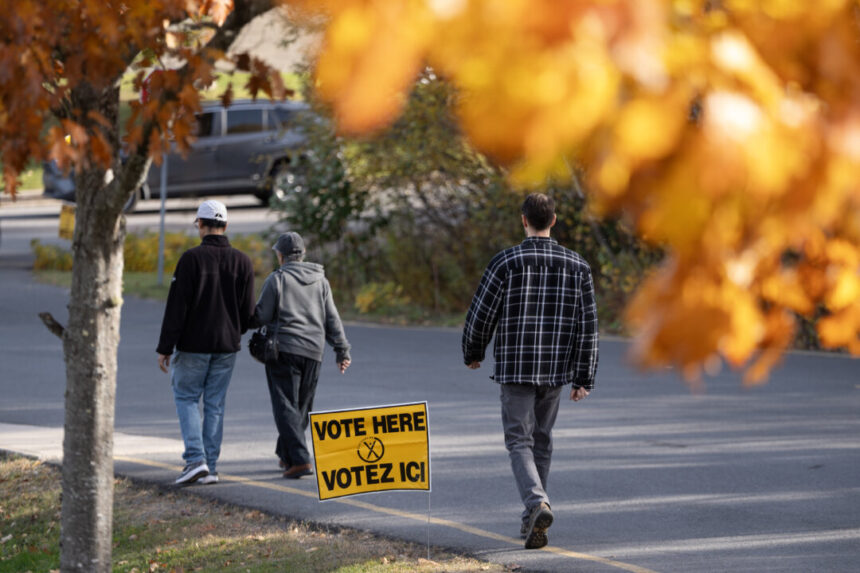Canada saw three provincial elections this month, resulting in a new majority Liberal government in New Brunswick, a fifth consecutive majority government for the Saskatchewan Party, and a narrow victory for the BC NDP.
While these were the only fixed elections scheduled for the fall, Nova Scotians will now head to the polls next month following a snap election call by Conservative Premier Tim Houston.
Saskatchewan
The Saskatchewan election marked a historic fifth straight victory for Scott Moe and the Saskatchewan Party, the first time since 1960 that a party has achieved this feat. The Saskatchewan Party secured a majority government, although with fewer seats in the legislature due to a strong showing by the NDP.
The NDP’s revitalization led to wins in 26 ridings, nearly doubling its size in the legislature and becoming the official Opposition. Several long-serving Sask. Party MLAs were defeated.
In his victory speech, Moe acknowledged the decline in support compared to the previous election and pledged to regain the trust of those who did not vote for his party.

Re-elected Saskatchewan Premier Scott Moe speaks to media, following his party winning a majority government in the provincial election, in Shellbrook, Sask., on Oct. 29, 2024. The Canadian Press/Liam Richards
Onto British Columbia, where the B.C. NDP emerged victorious after a historic election decided by counting absentee and special ballots. Elections BC confirmed the NDP’s majority win, but a judicial recount in one riding may affect this outcome.
The tightening race in Surrey-Guildford could potentially shift the majority status, while a recount in Kelowna Centre is also pending. The rise of the Conservatives in the legislature has been unprecedented, with the party now forming the Official Opposition.
BC NDP Leader David Eby expressed gratitude for the close victory and emphasized the party’s commitment to addressing pressing issues like healthcare and affordability.
New Brunswick
The New Brunswick election saw a significant shift as the Liberal Opposition claimed victory over the Progressive Conservative government. Longtime PC MLA Glen Savoie stepped in as interim leader after Premier Blaine Higgs failed to secure his seat.

New Brunswick Liberal Leader and Premier-elect Susan Holt addresses supporters at her campaign headquarters in Fredericton, N.B., on Oct. 21, 2024. The Canadian Press/Stephen MacGillivray
The Progressive Conservatives, the incumbent party, secured 16 ridings to become the Official Opposition in the legislature, while the Greens managed to win two seats. Holt’s campaign primarily focused on health care and cost-of-living issues, with a promise to maintain a balanced budget.
During the election campaign, a notable division between English and French voters emerged, with francophones rallying behind Holt’s Liberals. In Nova Scotia, Premier Tim Houston called for an election on Nov. 26, deviating from the fixed July 15, 2025, election date. The decision was made while the Progressive Conservative party was leading in the polls, possibly to capitalize on the popularity of the federal Conservatives in Atlantic Canada.
A summer poll in Nova Scotia revealed that Houston was the preferred candidate for premier at 34 percent, followed by NDP Leader Claudia Chender at 16 percent and Liberal Leader Zach Churchill at 15 percent. Tensions between the PCs and Liberals escalated after a former Liberal crossed the floor to join the Progressive Conservatives.
At dissolution, the Nova Scotia legislature comprised 34 Progressive Conservative MLAs, 14 Liberal MLAs, 6 NDP MLAs, and one Independent MLA. The upcoming elections include Newfoundland and Labrador in 2025, with polls suggesting a close race between the Liberals and Progressive Conservatives. Additionally, Nunavut and Yukon will have territorial elections in 2025, with the federal election set for Oct. 20, 2025. Please rewrite this sentence.
Source link





